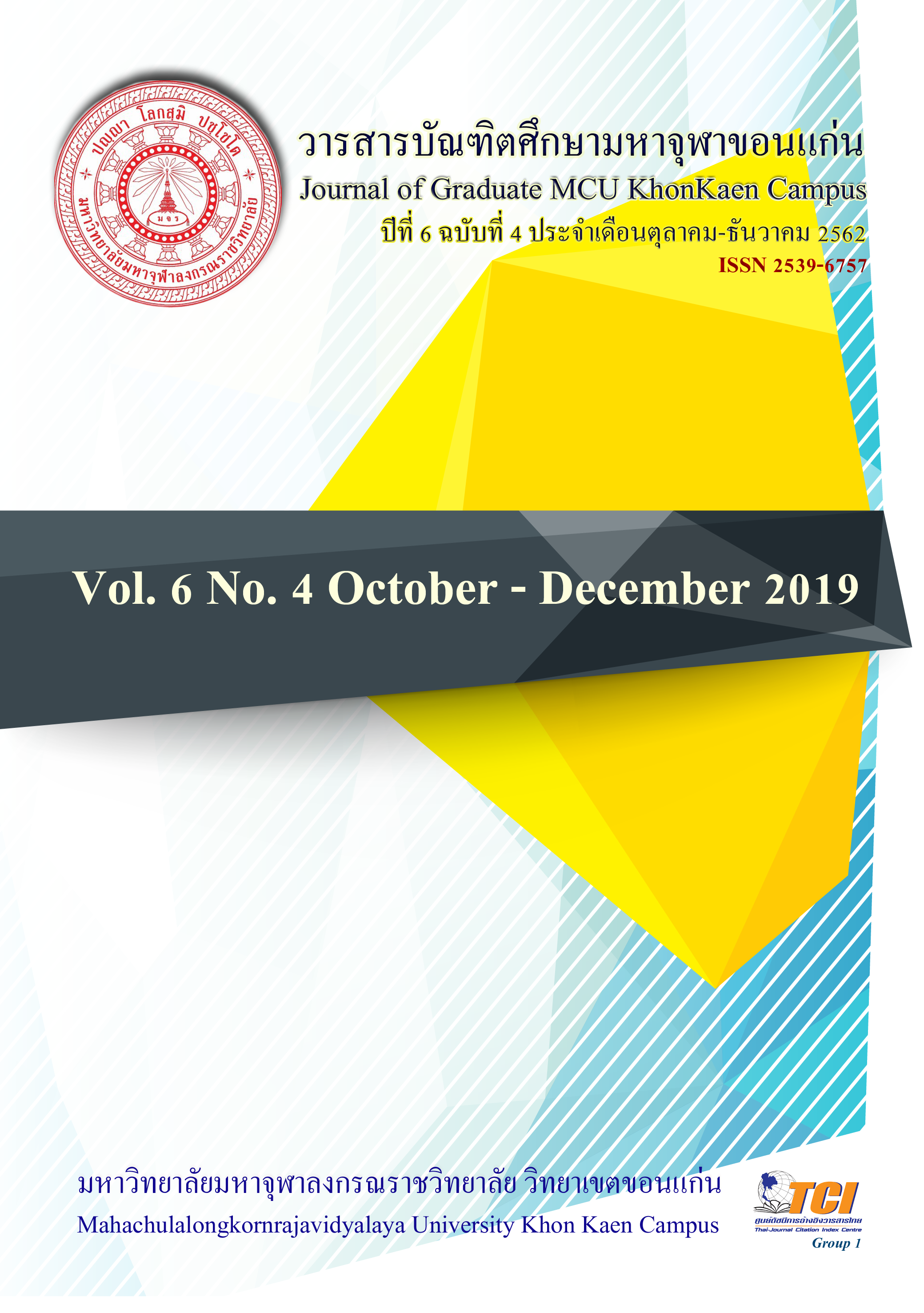The Effects of using the Sufficiency Economy Philosophy in the Management of Organic Agricultural Community Enterprise, Chaiyaphum Province
Main Article Content
Abstract
The objectives of this research were 1) to study the problems before and after establishing an organic agricultural community enterprise in Chaiyaphum Province, 2) to synthesize the implementation of the sufficiency economy philosophy in the management of an organic agricultural community enterprise in Chaiyaphum Province and 3) the results of applying the sufficiency economy philosophy to the management of an organic agricultural community enterprise in Chaiyaphum Province. The target groups in this research were academics, community leaders, a group chairman, a secretary, a treasurer, buyers and consumers of community enterprise products and 17 provincial agricultural officers. The research tools were observation forms, in-depth interviews and a questionnaire for group discussion. Data were analyzed using descriptive analysis method.
The results were as follows.
1) The problems before and after establishing an organic agricultural community enterprise in Chaiyaphum Province were as follows. (1) The problems before establishing a community enterprise were personnel and marketing management. (2) The problems after establishing a community enterprise were personnel, finance, materials and management.
2) According to the synthesis of the sufficiency economy philosophy in the management of an organic agricultural community enterprise in Chaiyaphum Province, it was found that the sufficiency economy philosophy was adopted to manage an organic agricultural community enterprise in various aspects as follows. In terms of the personnel management, the group was formed from the members having the same idea and the number of members was increased gradually. In addition, within the group, the duties were allocated based on the members’ ability. There was exchange learning. The members were honest, sincere, not taking advantage of each other. For the financial management, it was administered carefully, not causing additional debts, but saving. For the management of materials and equipment, it focused on raw materials, production and workers within the group. In terms of the management of activities, it was not appropriately organized and there was a reduction of risk by creating an emergency plan. A network of learning is also constructed.
3) According to the application of the sufficiency economy philosophy to the management of an organic agricultural community enterprise in Chaiyaphum Province, it was found that the organic agricultural community enterprise had efficient management in various aspects as follows. Based on the personnel aspect, the staff and members of the group realized the sufficiency economy philosophy. They loved each other and lived together happily. They also had unity and generosity as well as skills in applying wisdom to work. They worked near their houses so that they can take care of the family and create warmth for family members. Based on the financial aspect, the members can also have stable income because there were certain products for sale. The members lived sufficient life that they saved money and did not have debts. In terms of the material and equipment, they produced products based on their capacities, and the labor of members and the main raw materials for production were mainly used.. There was an establishment of a network of learning. They also created partnerships with both public and private agencies. The products were produced based on the customers’ orders in order to reduce capital risk

